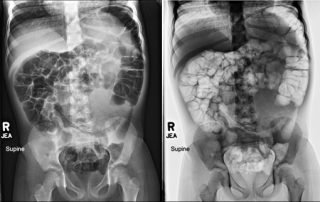Summer 2024
Spring 2024
Fall 2023
Spring 2023
Fall 2022
Summer 2022
Fall 2021
Spring 2021
Fall 2020
Summer 2020
Spring 2020
Winter 2020
Winter 2019
Fall 2019
Summer 2019
Spring 2019
Winter 2019
Happiness In Residency And Beyond
James Chapman, DO Kent Hospital, Warwick, RI Residency is full of tasks that make life busy. Working shifts, studying at home, preparing for weekly lectures, and attending journal club are all part of residency life. On top of this, you are encouraged to do research, travel and present at conference [...]
Letter From The Editor- Fall 2017
Welcome back! The fall edition is here with an exciting line up of articles. From acute myocardial infarction to physician burnout to violence in the emergency department, The Fast Track covers a gamut of topics you want to be familiar with as a resident or student in emergency medicine. Hopefully, [...]
A Letter From The ACOEP-RSO Presidents
Welcome to The Fast Track! This year has been a time of major shift here at ACOEP. As your resident and student leadership, we have been working to provide you with the most exciting and educational emergency medicine experience we can offer. Many of you will be reading this letter from the comfort [...]
Owning That Away Rotation In Residency
Dhimitri Nikolla, DO, PGY-II ACOEP-RC Secretary AHN Saint Vincent Hospital, Erie, PA While many of us spent more time on away rotations than home rotations during medical school, doing an away rotation as a resident may be like learning to ride a bike again. As residents, we work hard every day to n [...]
Be Afraid. Be Very Afraid.
Alexander Torres, DO, PGY-4 Comanche County Memorial Hospital Transitional career phases are, without a doubt, an emotional rollercoaster filled with anxiety, nervousness, and fear, to name just a few. As an emergency medicine physician, you will be continuously challenged throughout your career, no [...]
Spring Seminar Recap
This year, ACOEP hosted the annual Spring Seminar at the Hyatt Regency Coconut Point Hotel in Bonita Springs, Florida, from April 18-22, 2017. Dedicated student events took place on Thursday, April 20th, and included first through fourth year medical students, with 15 different schools in attendance.
How To Survive The First Two Years Of Medical School
Countless tests, endless hours of studying, and bottomless pots of coffee - the first two years of medical school are unlike anything most people will ever experience. As the pressure mounts, so does your stress level. We have compiled 10 tips to not only help you survive the grueling didactic portion of medical school, but to ensure you thrive as you embark on your career in emergency medicine.
A Sticky Case of “Splenomegaly”
A 6-year-old female presented with a two-day history of abdominal pain after being referred by her pediatrician for evaluation of "splenomegaly." The patient had been complaining of constipation for the past six days along with a few episodes of nausea and vomiting. On physical examination, a firm, non-tender mass was palpated extending at least 10 cm below the left costal margin.
Isolated Bandemia: What Should We Do with It?
Almost immediately, emergency physicians know what to do with most abnormal lab results. If a patient’s hemoglobin is 4.5 g/dL, they need a transfusion. If their troponin is 12.3 ng/ml, they are having cardiac infarction. If their lactic acid is 7.5 mmol/L, something terrible is going on. What if the only abnormality they have on their blood work is bandemia? Does it matter if their bands are 6%, 15%, or 32%? Or, are they all treated equally?
Improving the Quality of Pediatric CPR
Pediatric cardiopulmonary arrest (PCA) is a rare event; it occurs out-of-hospital in about 8.04 per 100,000 person-years compared to 126.52 per 100,000 person-years in adults [1]. As expected, the mortality is high; one study found one month survival of pediatric out-of-hospital cardiac arrest (OHCA) to be 10.5%, while another study found survival to discharge of pediatric in-hospital cardiac arrest (IHCA) to be 31.3% [2,3]. Achieving higher rates of survival is dependent on many factors in the chain of survival, but the performance of good quality cardiopulmonary resuscitation (CPR) has been shown to be directly associated with survival. In this article, we will define quality CPR in the pediatric patient, review some studies linking certain aspects of CPR with survival in PCA, and review some adjuncts to improve CPR performance.

